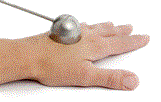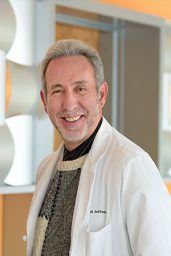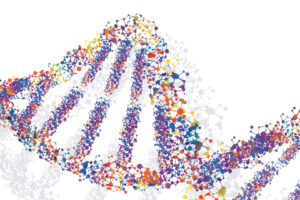A woman in her 80s recently came to see me because she had a small skin cancer lesion on her nostril that needed treatment
She was worried that having it surgically removed would leave a scar on a very prominent area of her face. In order to undergo surgery, she would also have to temporarily stop taking an important medication to prevent blood clots
Together, we decided instead to pursue skin brachytherapy, a new, non-surgical treatment for certain types of localized skin cancer. The procedure uses radiation to destroy cancer without the need to cut into the skin — often resulting in a superior cosmetic outcome.
First introduced at CentraState Medical Center last fall, skin brachytherapy is proving to be a highly effective option for more and more patients who don’t want to undergo surgery or are concerned about permanent scarring. This woman, in particular, was very pleased with her appearance following treatment.
Are You a Candidate?
Skin cancer is, by far, the most common type of cancer. Nearly 9,500 people in the U.S. are diagnosed with skin cancer every day, according to the American Academy of Dermatology.
The good news is the two most common types of skin cancer — basal cell carcinoma and squamous cell carcinoma — are generally localized and highly treatable. However, they frequently occur on areas of the body that get a lot of sun exposure, including the face, nose and lips.
Traditional treatments, including surgical removal and cryotherapy (freezing), can leave unsightly scars in highly visible areas. Brachytherapy is potentially a good alternative for patients who:
- Have small (2 cm or less), early stage basal cell or squamous cell lesions on the surface of the skin.
- Are worried about the cosmetic outcome of having cancer surgically removed.
- Are worried about the functional outcome of having cancer surgically removed from areas such as the eyelids and tear ducts.
- Are not good candidates for surgery because of other health conditions.

The procedure is not recommended for larger lesions or those that have grown deep under the skin. It is also not a treatment for melanoma, the most serious type of skin cancer.
How Brachytherapy Works
During skin brachytherapy, a specially designed circular applicator is placed over the area being treated. The applicator is hooked up via a tube to a machine that precisely delivers a tailored radiation dose directly to the tumor.
State-of-the-art imaging and computer-based planning are used to help ensure the radiation destroys cancer cells while minimizing exposure and potential damage to surrounding, healthy tissues. The procedure should cause no pain.
Each treatment lasts about five to 10 minutes, and patients generally undergo seven treatments in a little over two weeks. In the weeks following the treatments, dead skin from the lesion gradually flakes off, leaving healthy skin with almost no likelihood of scarring and a very low likelihood of cancer coming back.
In fact, the procedure is so quick and convenient, we have successfully treated hospital employees who were able to receive treatments during their lunch break. I have also seen many patients who had multiple lesions surgically removed in the past. They were thrilled to have a less-invasive alternative that is equally as effective as surgery.
A Comprehensive Cancer Program
Skin brachytherapy is one of the many state-of-the-art treatments available through the Statesir Cancer Center at CentraState. With a talented team of cancer specialists, and an approach that emphasizes personal caring, the center gives patients the kinds of choices found in the most respected medical centers throughout the country.
For more information about skin brachytherapy for the treatment of skin cancer and all other treatment options offered at The Statesir Cancer Center at CentraState Medical Center, call 855-411-CANCER.
 Dr. Edward Soffen is a board-certified radiation oncologist and medical director of the Radiation Oncology Department at CentraState Medical Center in Freehold. He can be reached at Princeton Radiation Oncology by calling 866-CENTRA7.
Dr. Edward Soffen is a board-certified radiation oncologist and medical director of the Radiation Oncology Department at CentraState Medical Center in Freehold. He can be reached at Princeton Radiation Oncology by calling 866-CENTRA7.





